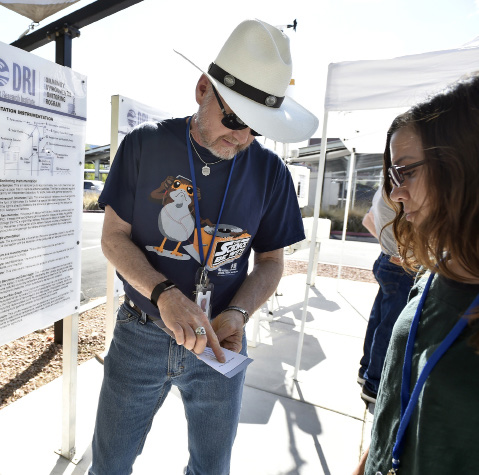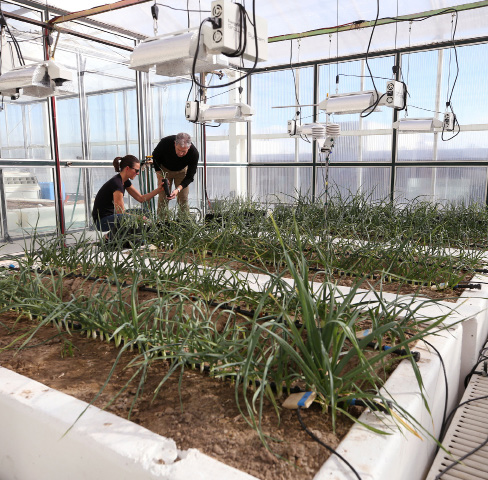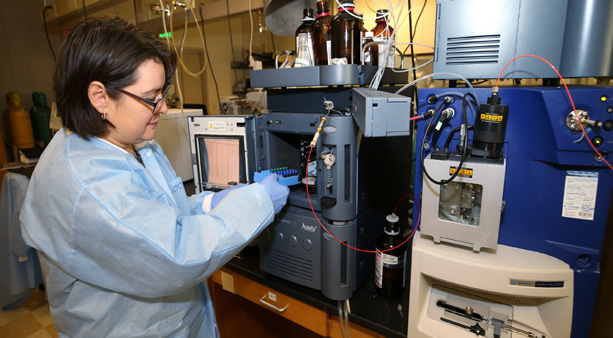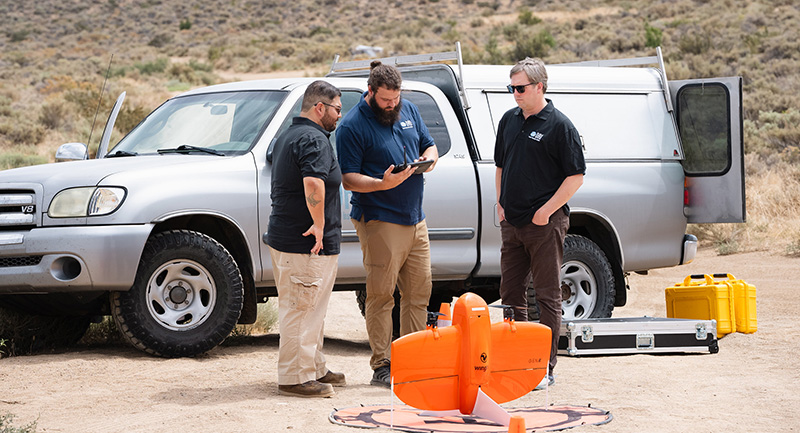Our Impact
Working to Solve Our Most Challenging Environmental Problems
DRI at a Glance
600+ scientists, engineers, students, & staff.
Over $59 million in sponsored research.
140+ Ph.D. faculty in over 40 disciplines.
2 research campuses
70 specialized labs
DRI is a recognized world leader in basic and applied environmental research. Committed to scientific excellence and integrity, DRI faculty, students who work alongside them, and staff have developed scientific knowledge and innovative technologies in research projects around the globe. Since 1959, DRI’s research has advanced scientific knowledge on topics ranging from humans’ impact on the environment to the environment’s impact on humans. DRI’s impactful science and inspiring solutions support Nevada’s diverse economy, provide science-based educational opportunities, and inform policymakers, business leaders, and community members. With campuses in Las Vegas and Reno, DRI serves as the non-profit research arm of the Nevada System of Higher Education.
Faculty members at DRI are nontenured and responsible for their own salaries through external grants and contracts. Through this blend of academic rigor and private-sector pragmatism, DRI has earned a reputation for delivering high-quality scientific information in an efficient, transparent, and accountable fashion.
OUR MISSION
We are a home for science to create a better future for the people of Nevada and the world. We implement our mission through shared governance and by fostering diverse talent.



OUR VISION
We envision a world in which trust between scientists and the public forms the basis for a more sustainable and resilient environment for all people to live, grow, and prosper.
RESEARCH AREAS
DRI’s reputation is built on 60 years of air, water, land, and ecosystem research. The institute is committed to continued research excellence in these areas and invigorating them with investigations into today’s most pressing environmental challenges.
ATMOSPHERIC SCIENCES
Conducting fundamental and applied research into natural atmospheric processes and air quality issues of regional, national, and planetary interest.
EARTH & ECOSYSTEM SCIENCES
Investigating the complex interactions of geological processes, organisms, biological communities, and human societies.
HYDROLOGIC SCIENCES
Advancing society’s understanding of hydrological systems and encouraging more effective management of water resources.
CLIMATE & DATA SERVICES
Collecting and disseminating high quality climate data and information and conducting applied environmental research related to climate issues.
FIRE SCIENCES
Combining broad expertise in fire emissions, ecology, and hydrology to gain a holistic understanding of fire causes, processes, and effects on the envrionment and our communities.
WATER RESOURCE SUSTAINABILITY
Addressing research and capacity gaps that persist in developing countries and assisting with the design of sustainable water, sanitation, and hygiene programs in order to improve community health.
PUBLIC HEALTH & THE ENVIRONMENT
Pioneering new ways to investigate the intersections between the environment and human health in order to improve care for Nevadans and people around the world.
ADVANCED AUTONOMOUS SYSTEMS
Developing innovative applications for new autonomous aerial systems technologies to monitor air quality and enhance snowfall.

EDUCATION OUTREACH:
DRI’s Education Outreach collaborates with partners and sponsors to provide STEM education resources, training, and interventions to educators, students and families across the state. DRI’s PreK-College education resources are brought to you through the STEM Education Program and Nevada Robotics.

CITIZEN SCIENCE:
DRI creates pathways for lifelong learning and engagement with science through citizen science programs that enlist community members to participate in research into the environmental issues that impact their communities, like air quality and winter storm characteristics.
– Mountain Rain or Snow
– Project Ashfall

INNOVATION & INDUSTRY:
DRI’s technology commercialization partner, the Desert Research Corporation, aligns DRI’s world-class scientific resources, specialized laboratories, and expertise with market-based solutions targeting some of today’s most complex sustainability challenges.

